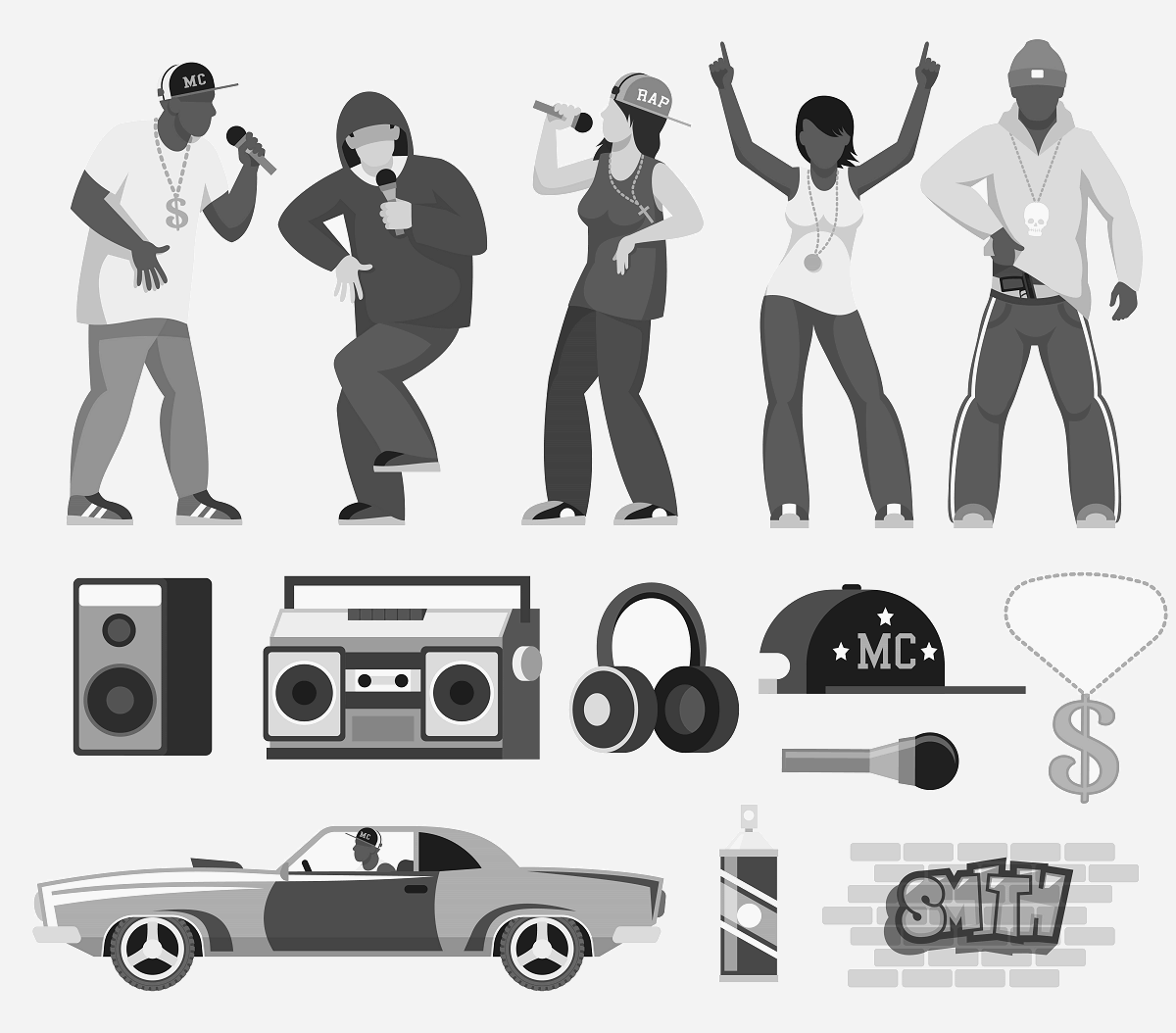
Origins of Hip Hop: Uncovering the Pioneers and Evolution of the Cultural Phenomenon
Hip hop is a cultural phenomenon that has captivated and influenced millions of people worldwide. From its early beginnings in the South Bronx in the late 1970s to its current status as a dominant force in global music and popular culture, hip hop has undergone a fascinating and complex evolution. In this article, we will explore the origins of hip hop, uncover the pioneers who helped shape the culture, and examine its impact on music, dance, fashion, and society.
Definition of Hip Hop and Its Cultural Significance
Hip hop is a cultural movement that emerged from the streets of the South Bronx in New York City in the late 1970s. It encompasses music, dance, art, fashion, and a distinctive urban lifestyle. Hip hop music, characterized by its rhythmic beats, rhyming lyrics, and sampling of pre-existing music, has become the most consumed genre of music in the United States.
Hip hop culture has significant cultural and social significance, particularly for African American and Latino youth in urban communities. It has been used as a tool for self-expression, community building, and social and political activism. As KRS-One, a prominent hip hop artist and activist, once said, "Hip hop is not just music, it's a cultural movement that encompasses music, dance, art, and fashion."
Historical Background and Social Context of Hip Hop's Emergence
The roots of hip hop can be traced back to the early 1970s when block parties and outdoor jams were popular in African American and Latino neighborhoods in New York City. These parties were often hosted by DJs who would play funk, soul, and disco records, and the crowd would dance to the music.
One of the pioneers of hip hop was DJ Kool Herc, who is credited with inventing the breakbeat, a technique of isolating and repeating a drum break in a song, which became the foundation of hip hop music. In 1973, Herc hosted a party at 1520 Sedgwick Avenue in the Bronx, which is considered the birthplace of hip hop.
Early Pioneers of Hip Hop, Their Contributions and Influences
In addition to DJ Kool Herc, other early pioneers of hip hop include Afrika Bambaataa, Grandmaster Flash, and The Furious Five. These artists helped shape the sound and style of hip hop music and culture, and their influence can still be seen and heard today.
Afrika Bambaataa, who is often referred to as the "godfather of hip hop," was instrumental in spreading hip hop culture beyond New York City. He created the Universal Zulu Nation, a hip hop collective that promoted peace, unity, and social justice through music and dance.
Grandmaster Flash and The Furious Five were among the first hip hop groups to achieve mainstream success. Their 1982 hit "The Message" addressed social and political issues faced by inner-city youth, and it is considered one of the most important songs in hip hop history.
The Evolution and Spread of Hip Hop Culture
Throughout the 1980s and 1990s, hip hop culture continued to evolve and spread, with new artists and sub-genres emerging. The emergence of rap music, a style of hip hop characterized by spoken or chanted lyrics, helped propel hip hop to new heights of popularity.
In the 1990s, hip hop experienced a period of commercial success, with artists such as Tupac Shakur, Notorious B.I.G., and Dr. Dre achieving massive mainstream success. However, this period was also marked by controversy, as hip hop became associated with violence, misogyny, and materialism.
Hip Hop's Impact on Music, Dance, Fashion, and Society
Hip hop's influence has extended far beyond music, dance, and fashion, shaping and reflecting broader societal issues and concerns. As a cultural movement born in the context of poverty, discrimination, and social unrest, hip hop has been a vehicle for social commentary and political activism, addressing issues such as racism, police brutality, economic inequality, and urban decay. Hip hop artists have used their platform to speak truth to power and to give voice to those who have been marginalized and oppressed.
For example, the 1980s saw the rise of politically conscious hip hop, with artists such as Public Enemy and KRS-One addressing issues of racism, poverty, and police brutality in their lyrics. In the 1990s, hip hop became a major force in mainstream culture, with artists such as Tupac Shakur, Notorious B.I.G., and Jay-Z achieving commercial success while also addressing issues such as inner-city violence, drug addiction, and institutional racism. More recently, hip hop has continued to address social and political issues, with artists such as Kendrick Lamar, J. Cole, and Chance the Rapper using their music to address issues such as police brutality, systemic racism, and mental health.
In addition to its role as a platform for social commentary and activism, hip hop has also had a significant impact on popular culture and society more broadly. Hip hop fashion, with its baggy clothing, sneakers, and bold accessories, has become a global phenomenon, influencing everything from high fashion to streetwear. Hip hop dance, including breakdancing and other styles, has also become a cultural force, with competitions and events held worldwide.
Conclusion
Overall, hip hop's impact on music, dance, fashion, and society has been immense, shaping and reflecting broader cultural, social, and political trends. As a cultural movement that emerged from marginalized communities and spoke to the concerns and experiences of those communities, hip hop has had a profound impact on popular culture and society, inspiring and empowering generations of artists and activists.
Culture




